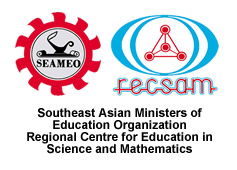Learning Science and Mathematics (LSM) Journal Vol.1, Issue 18, pp X-X
Improving Students’ Understanding in Pre-University Biology using Technology-Enhanced Inquiry-based Based Learning: A Reflective Study
Yoon Lai Yee & Bala Murali Tanimale
Received first draft 12 July 2023. Received reports from first, second and third reviewers (8 October, 2023 and 13 October 2023).
Received revised draft 25 December 2023.
Accepted to publish 30 December 2023.
Abstract
Purpose and Research Question - The aim of this action research, is to use the inquiry-based high-tech approach to help students to achieve a better understanding of their STPM Biology 964. In addition, this research aims to investigate students’ social, emotional and motivational factors or problems encountered in their online Biology learning taught using Google Classroom, Google Meet and WhatsApp were incorporated with the inquiry-based approach.
Methodology - The ‘Plan-Act-Observe-Reflect’ Action Research model was implemented. In cycle 1 of the action research, pre-university students were initially taught for a month (two online lessons weekly, 1.5 hours per lesson) entirely online or eLearning using mainly flipped classroom, mastery and contextual approaches assisted by Google Meet (video recording and conferencing), Google Classroom (grading assignments, comments/editing and lesson notes given using modules, videos, and screenshots) and WhatsApp (camera, video calls, STEM materials and Video calls).
Findings - The researcher compared the students’ Biology GPMP in their STPM trial exam with their Biology GPMP in their actual STPM exam (refer to Appendix 1). The researcher collected the responses to the 25 questions from the pre-university students in the Google Form which were analyzed with graphs and charts (refer to Appendix 2). The STPM trial exam for Biology Semester 1 and 3 students was marked and graded. These grades were then compared with the STPM actual exam grades for Semester 1 and 3 Biology using Headcount to calculate the GPMP forecast and arrived results. After one month of online teaching & learning, the researcher gave the students a pre-test Biology. These students were not able to get grade A and most of them obtained below grade B. The researcher continued the online lessons (twice weekly, 1.5 hours per lesson) using Google Classroom, Google Meet and WhatsApp with flipped classroom, mastery and contextual approaches but added in inquiry-based high-tech approach for the entire semester 1 and 3 until the students’ trial exams to help the students to improve their understanding of STPM Biology 964. The students also answered a Google Form questionnaire (25 questions) to find out their social, emotional and motivational factors or problems encountered during their online Biology learning taught using Google Classroom, Google Meet and WhatsApp with a mainly inquiry-based high-tech approach at the end of their semester.
Significance and Contribution in Line with Philosophy of LSM Journal - This article illustrates the students were low in science-related knowledge and ability, and not too interested in eLearning of Biology via Google Classroom, Google Meet and WhatsApp initially, but by using everyday elements and themes using the inquiry-based high-tech approach, the students were soon quick to buy in and were able to relate to their own experiences. That made learning Biology become real and relevant.
Keywords: Action Research; Biology STPM; Mendelian and non-Mendelian Genetics; Technology enhances inquiry-based learning; student-centered approach
© 2023 SEAMEO RECSAM LSM Journal
PDF Article
More Article
...

